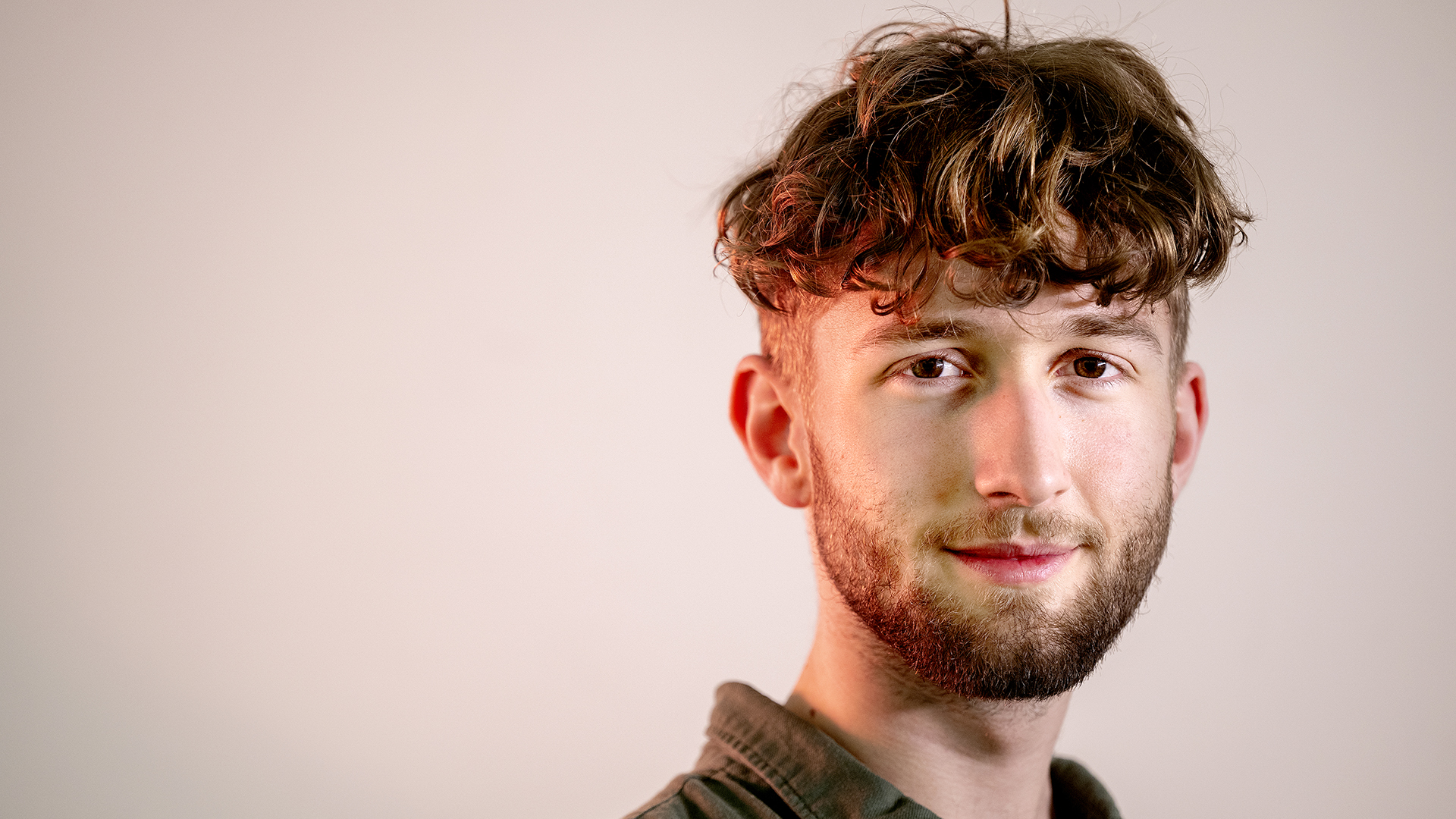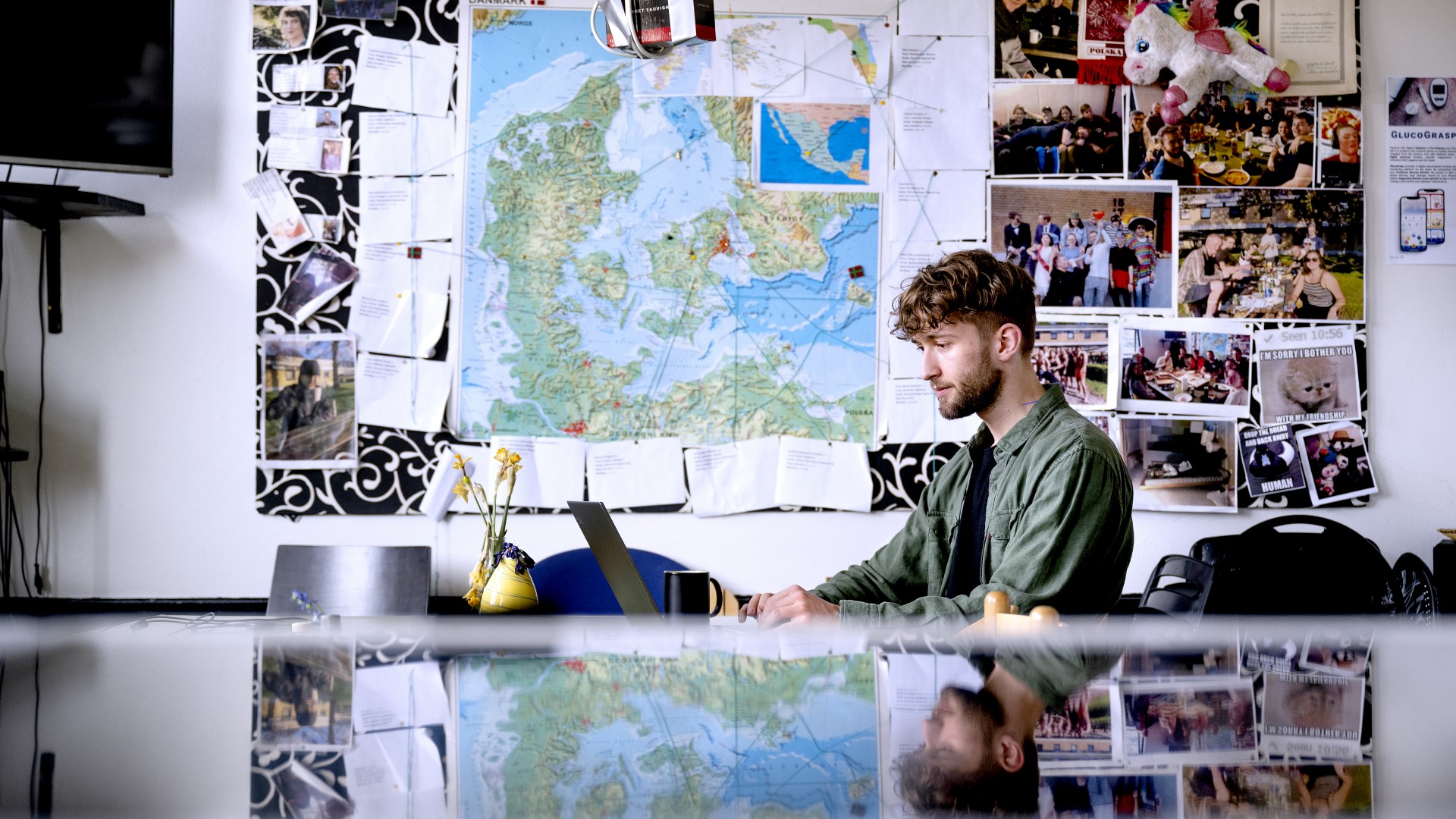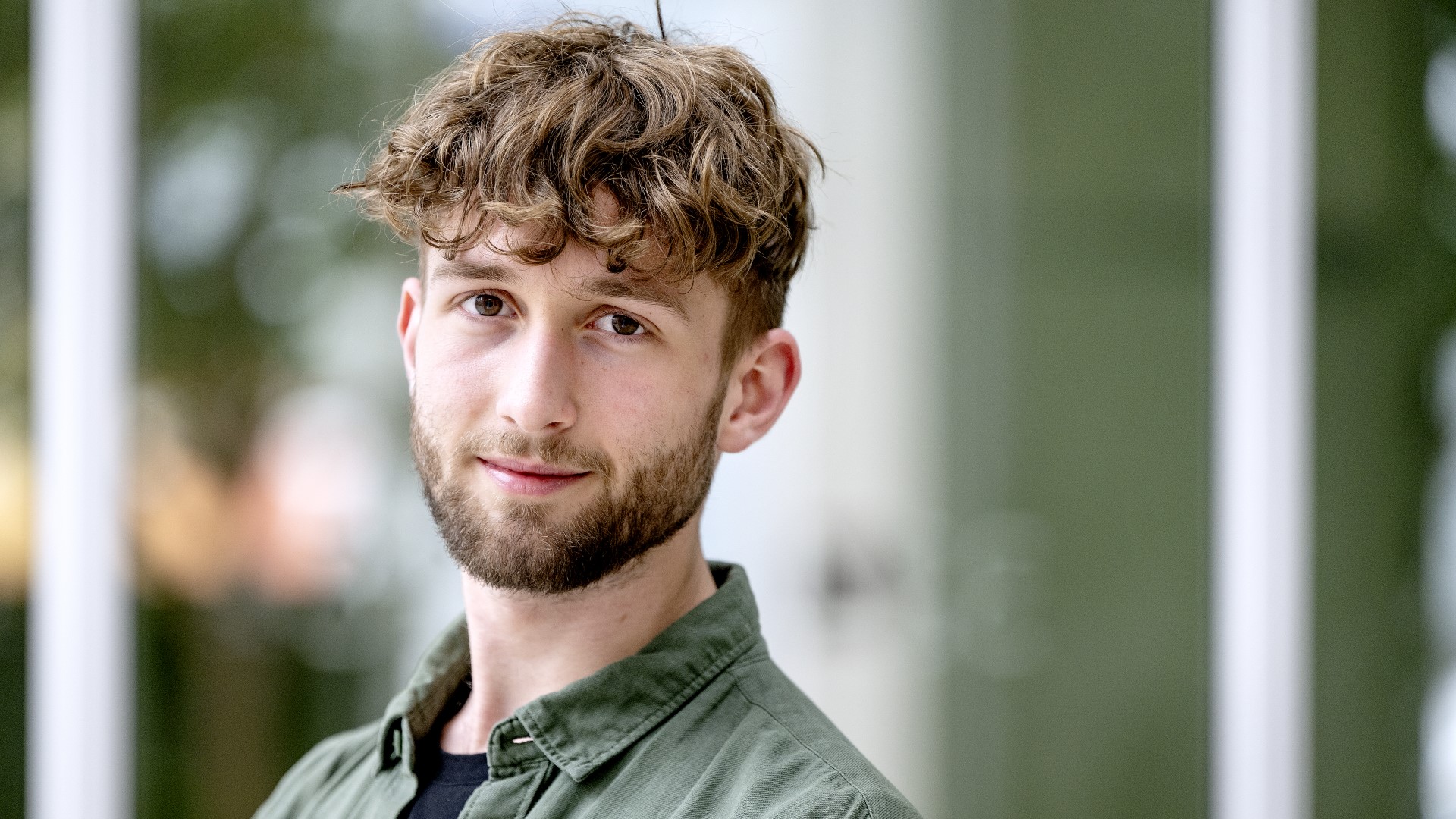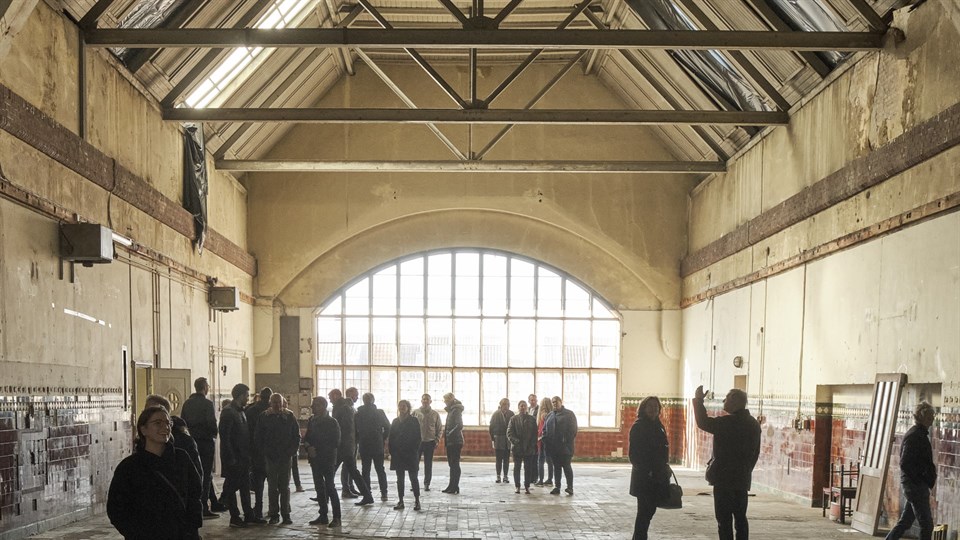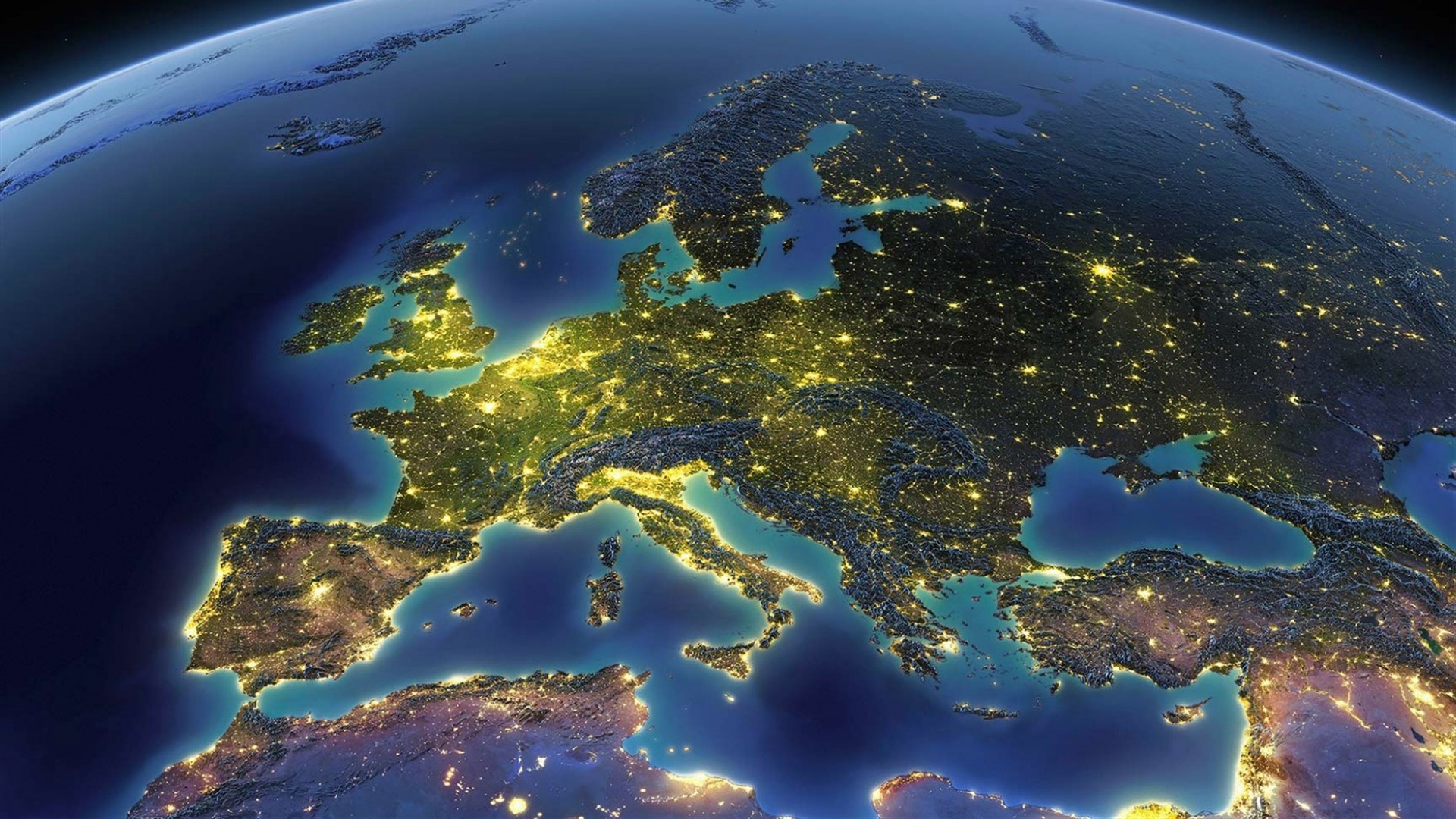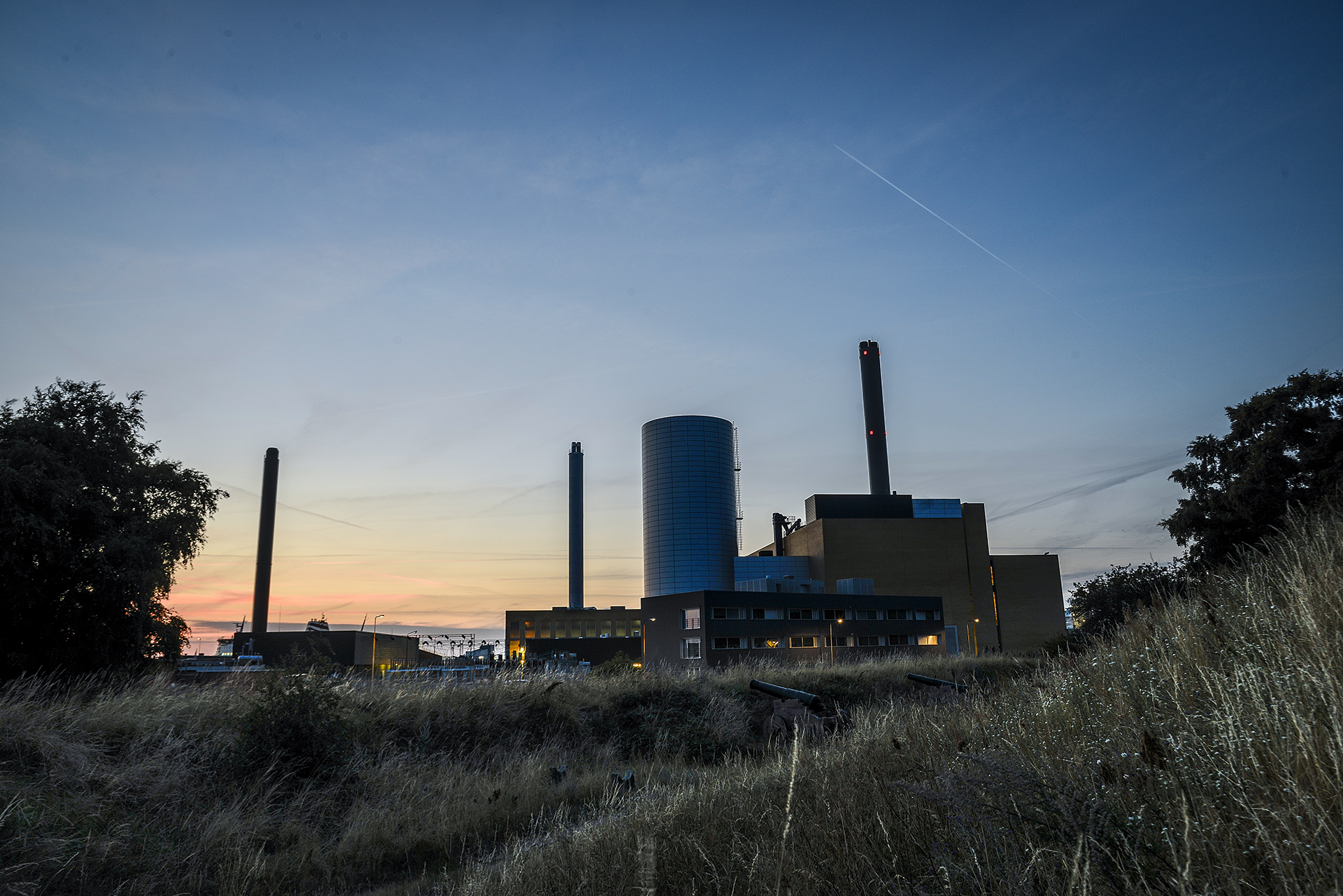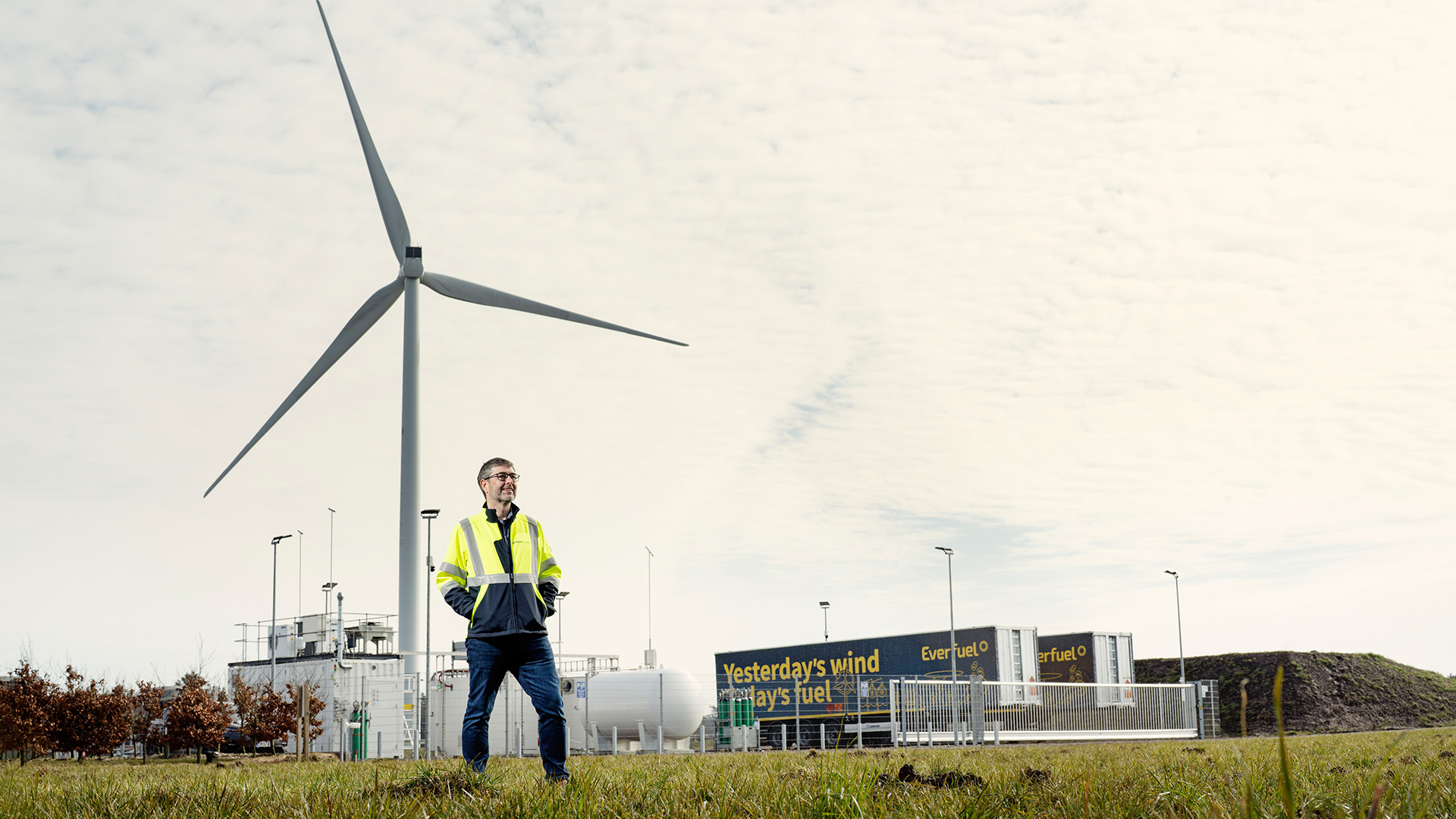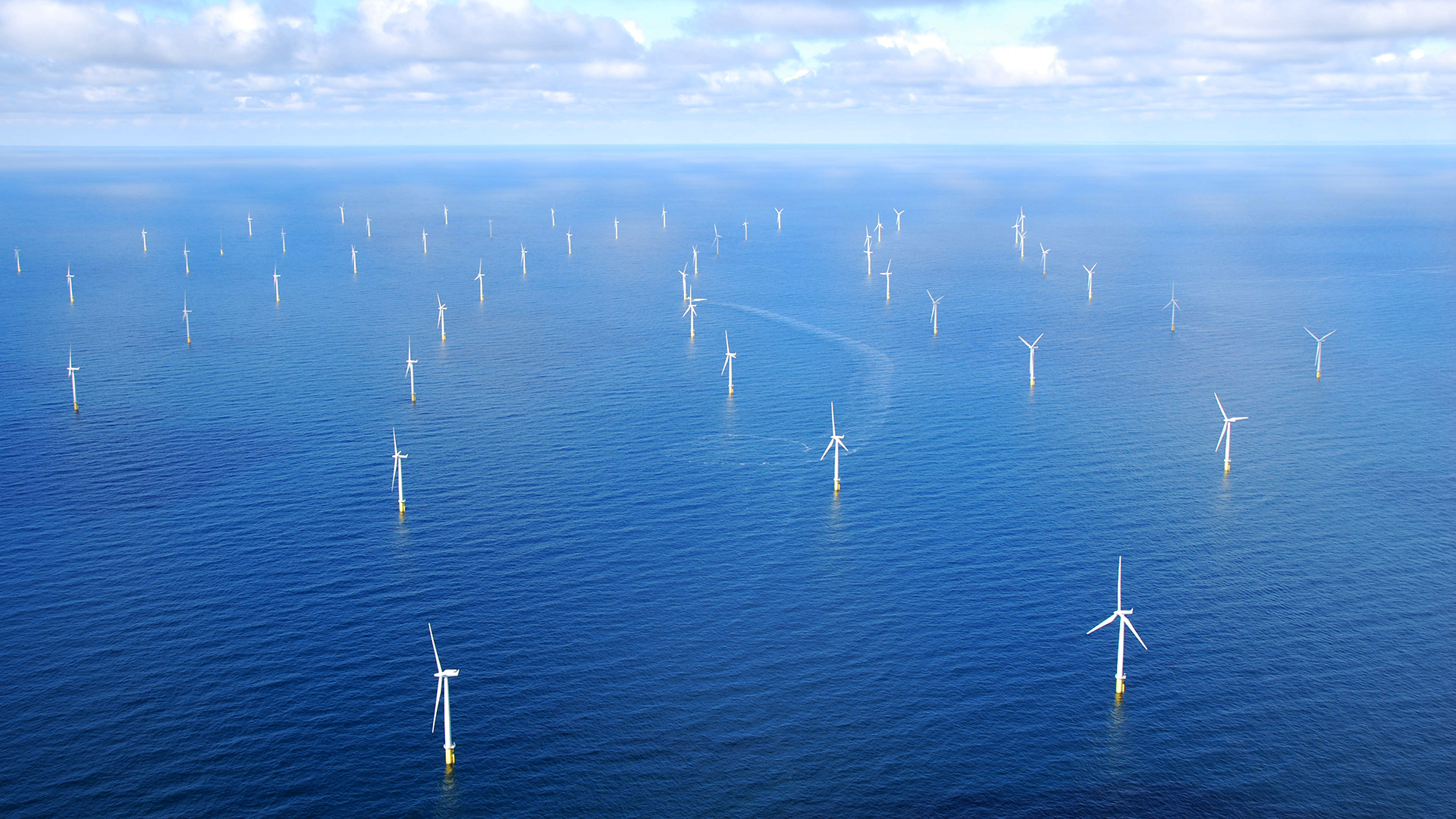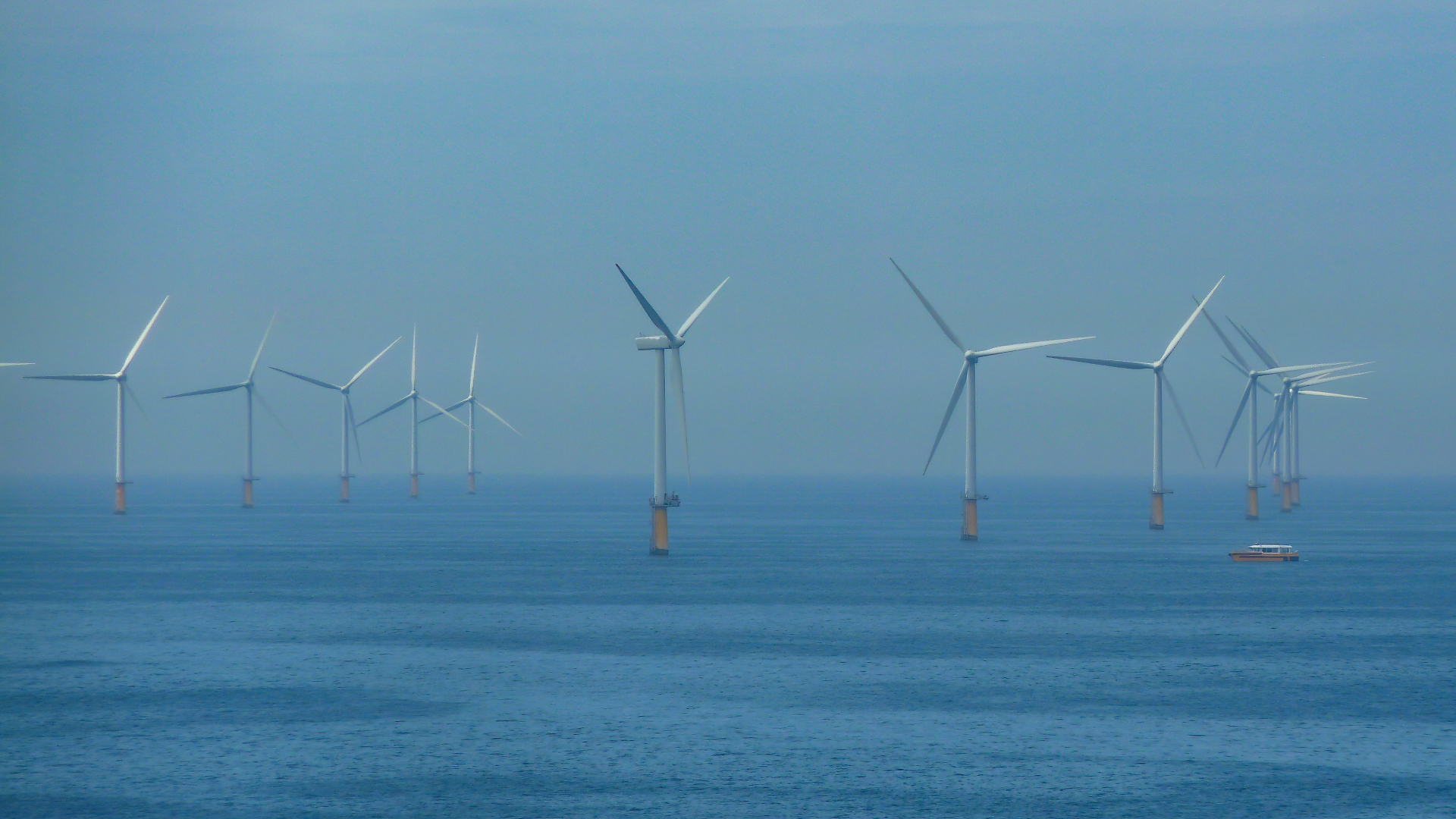Text: Miriam Meister
Bornholm has been known as the ‘sunshine island’ all of Thomas Vibe Hoffmeyer’s life. However, the 22-year-old could well be one of the people who make his native island just as well known as the ‘wind island’ in the future.
He has just completed a bachelor’s degree in Design of Sustainable Energy Systems from DTU. During his studies, he became aware of the enormous, untapped potential for harvesting renewable energy from the wind in the Baltic Sea via the planned energy island on Bornholm—and the job opportunities it will foster.
Thomas Vibe Hoffmeyer and a few fellow students have just been working on solving the challenges of sending power from offshore wind turbines ashore in the best, safest, and most cost-effective way, as part of a case study for Ørsted last semester.
“It was interesting to have to immerse ourselves in the subject in a relatively short time and then apply the theory we had learned in our studies so far. We also quickly discovered how many things you have to think about in practice when designing a system on this scale,” says Thomas Vibe Hoffmeyer.
His studies at DTU have opened Thomas Vibe Hoffmeyer’s eyes to the fact that a diploma documenting skills in sustainable energy transition could be the key to getting a job where he can really make a difference in the world—and perhaps even on his native island.
“I would really like to go back and live on Bornholm again,” he says.
“Given how much development there’s going to be, it’s a real dream scenario. There are huge future opportunities—not just for me, but also for Bornholm.”
The island has become a beacon for the green transition, as is evident by the EU award Bornholm received in 2020 when it was named Europe’s green island number one for its contribution to a more climate-friendly Europe through its ambitious sustainable energy development.
The award recognizes the extensive work to restructure the energy supply, which many players have contributed to since Bornholm in 2008 adopted the Bright Green Island vision of being CO2-neutral by 2025 and fossil-free by 2040.
